Vegetable Garden For Beginners – 10 Tips to Grow Veggies at Home
In an era where the importance of locally sourced, fresh, and organic produce is on the rise, there's no better way to ensure a steady supply of healthy vegetables than by starting your own vegetable garden at home. Whether you have a spacious backyard or just a small balcony, growing your own veggies is not only a rewarding and satisfying endeavor but also a step toward sustainable living. If you're new to gardening, fear not! This article will provide you with valuable tips and guidance on how to create a successful vegetable garden as a beginner.
1. Choosing the Right Location
The first step to embark on your vegetable gardening journey is to choose the right location for your garden. Here are some essential factors to consider:
Sunlight: Most vegetables require at least 6-8 hours of direct sunlight daily. Observe your outdoor space throughout the day to identify the sunniest spot. If you're limited to a balcony, select a spot that receives maximum sunlight exposure.
Soil Quality: The soil in your chosen location should be well-draining and rich in nutrients. You may need to amend the soil with compost or organic matter to improve its quality. You can also opt for raised beds or containers filled with high-quality potting mix if your soil is not ideal.
Proximity to Water: Ensure that your garden is easily accessible to a water source. Vegetables need consistent watering, especially during hot summer months. Having a hose or watering can nearby will make your gardening tasks much more manageable.
2. Planning Your Garden Layout
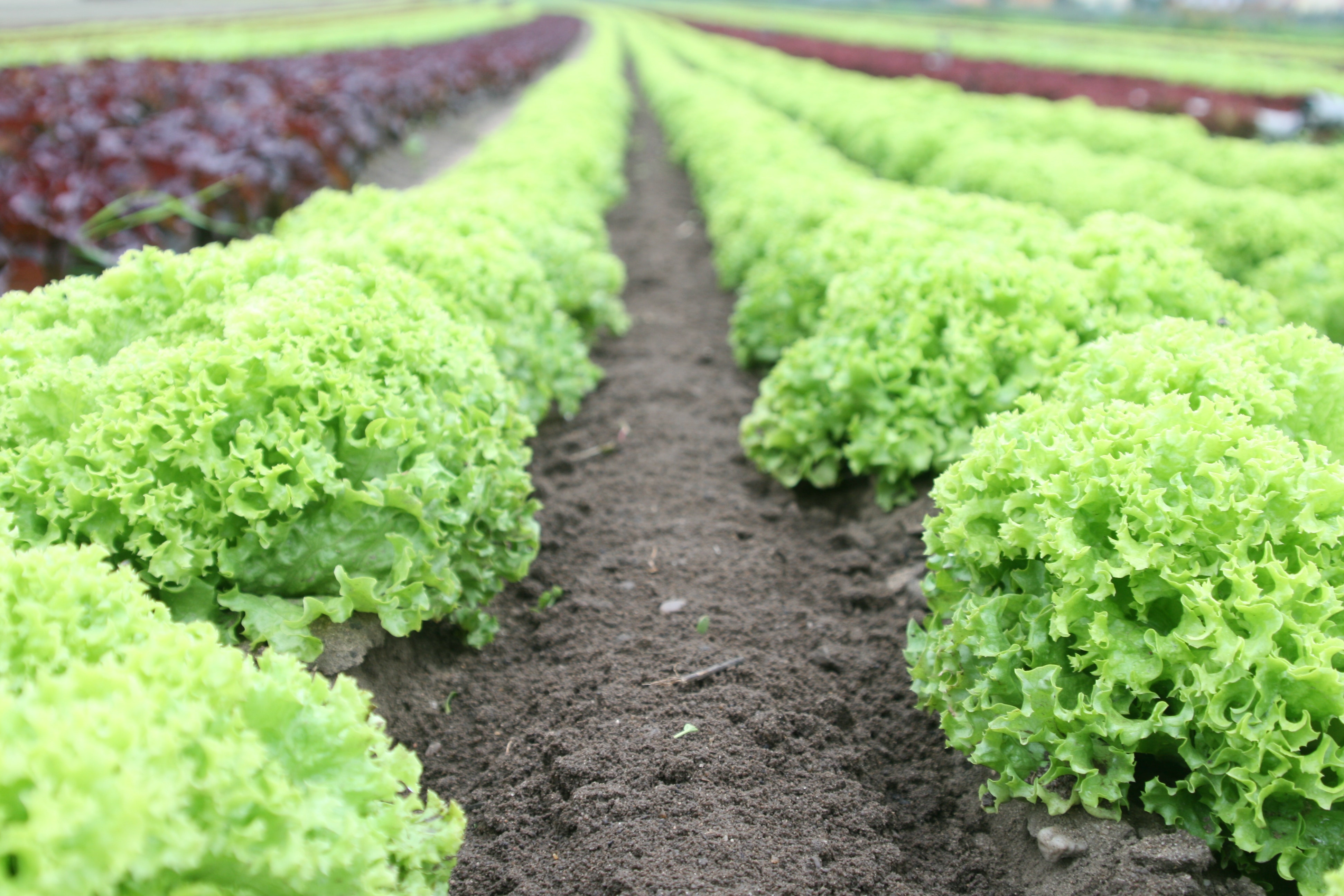
Now that you've chosen your garden location, it's time to plan the layout. Consider the following factors when designing your garden:
Spacing: Different vegetables require different spacing to grow properly. Consult seed packets or gardening guides to determine the appropriate distance between plants. Overcrowding can lead to poor growth and increased susceptibility to diseases.
Companion Planting: Research companion planting techniques to optimize plant growth and deter pests naturally. For example, planting marigolds near your tomatoes can help repel certain pests.
Crop Rotation: To prevent soil depletion and pest infestations, practice crop rotation by changing the location of your vegetables each year. Keep a simple garden journal to track where you've planted different crops.
If you want to start small and gain experience as a beginner gardener, you will love this herb garden kit. It will allow you to produce your own herbs at home. Click here to see how it works.
3. Selecting the Right Vegetables
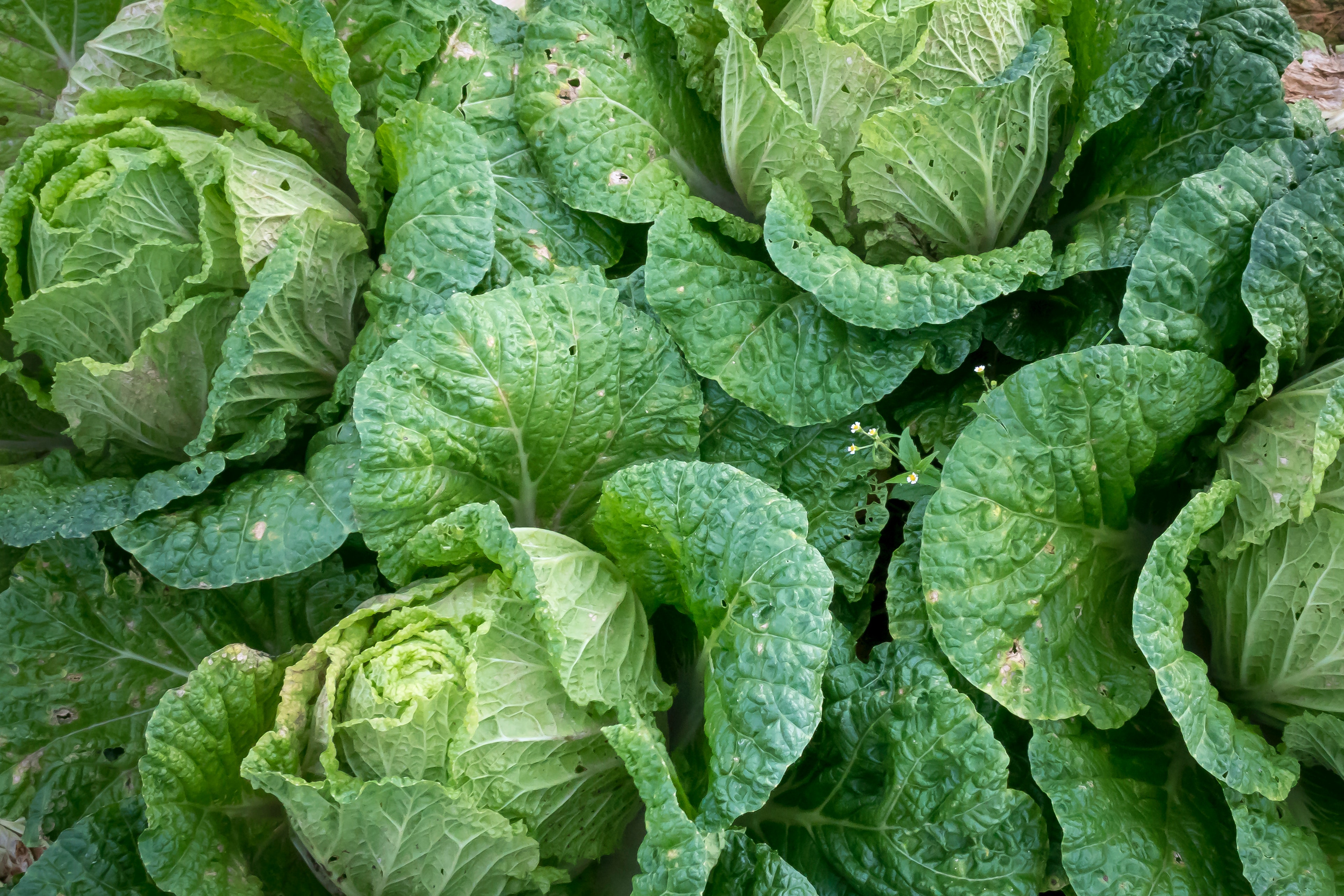
As a beginner, it's wise to start with easy-to-grow vegetables that are well-suited to your climate. Here are some excellent options:
Tomatoes: Tomatoes are a popular choice for beginners. They thrive in warm weather and can be grown in containers or in the ground. There are many varieties to choose from, including cherry, beefsteak, and Roma.
Lettuce: Lettuce is a cool-season crop that grows quickly. You can harvest fresh salad greens in just a few weeks. It's ideal for container gardening or small spaces.
Radishes: Radishes are among the fastest-growing vegetables and are perfect for impatient gardeners. They can be grown in containers or directly in the ground.
Zucchini: Zucchini is a prolific summer squash that produces abundant fruits. Make sure you have enough space as these plants can get quite large.
Herbs: Herbs like basil, mint, and parsley are great additions to your garden. They require minimal care and can be grown in pots or alongside your vegetables.
4. Soil Preparation and Fertilization
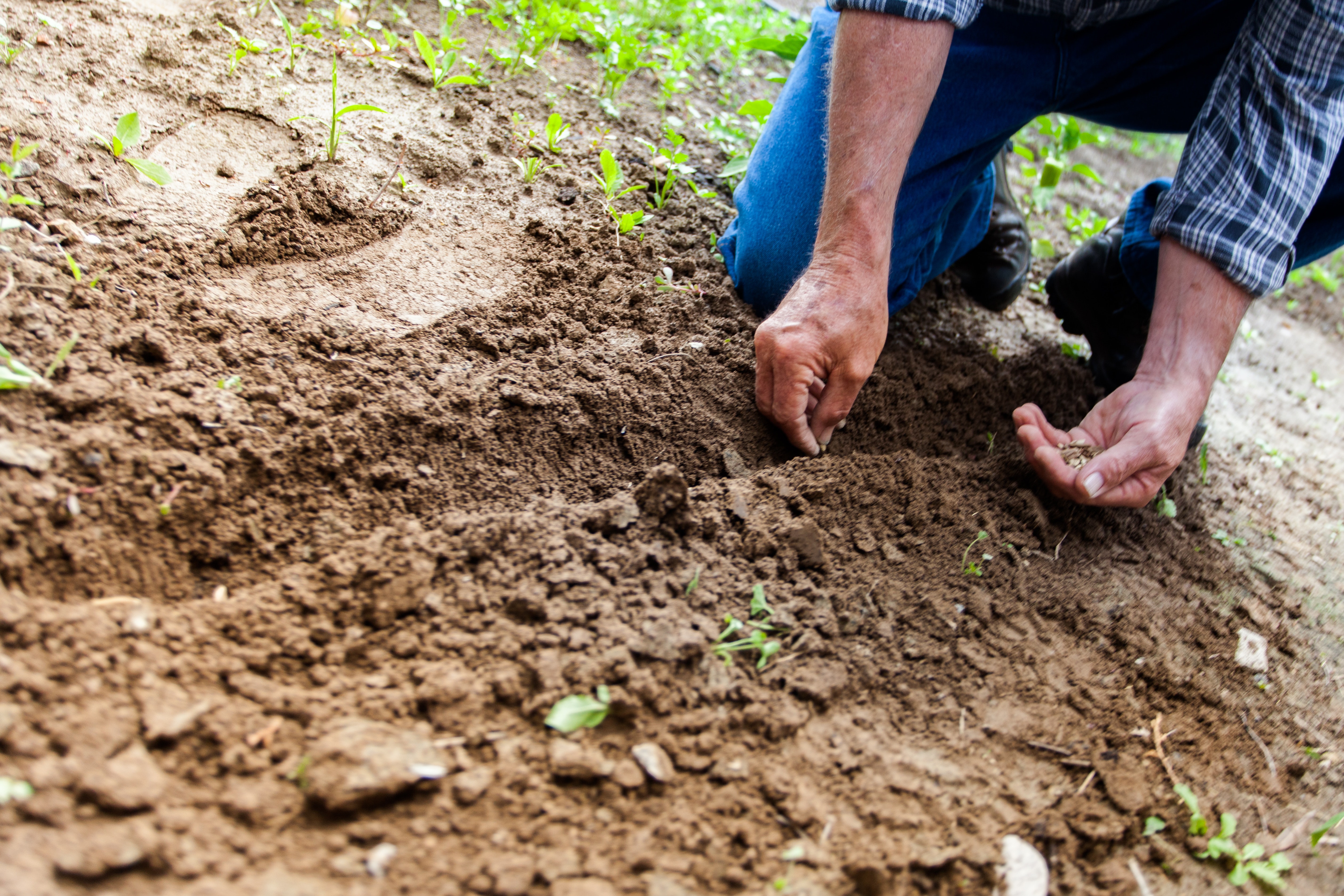
Healthy soil is the foundation of a successful vegetable garden. Here's how to prepare and maintain your garden soil:
Test Your Soil: Consider getting a soil test to determine its pH and nutrient levels. This will help you understand if any amendments are needed.
Add Organic Matter: Incorporate organic matter like compost, well-rotted manure, or peat moss into your soil. This improves soil structure and provides essential nutrients to your plants.
Mulch: Apply a layer of organic mulch, such as straw or wood chips, around your plants. Mulch helps retain moisture, suppress weeds, and regulate soil temperature.
Fertilize Sparingly: While organic matter provides nutrients, you may still need to supplement with a balanced fertilizer. Follow the recommended guidelines on the fertilizer package and avoid over-fertilizing, which can harm your plants.
5. Watering and Maintenance
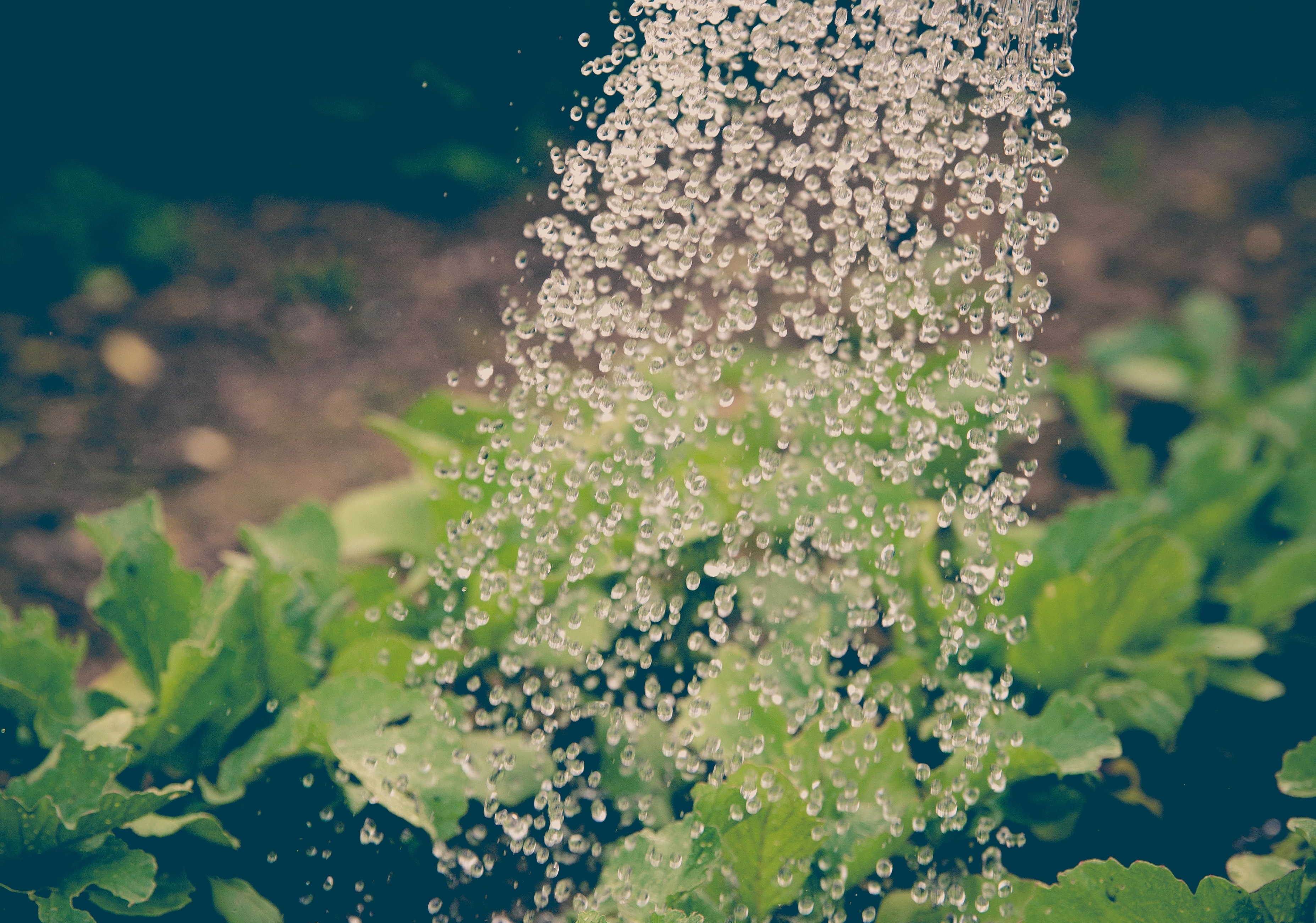
Proper watering and maintenance are critical to the health of your vegetable garden:
Water Consistently: Vegetables need consistent moisture. Water deeply, early in the day, to ensure the soil remains evenly moist. Use a soaker hose or drip irrigation system to minimize water wastage.
Weed Control: Regularly weed your garden to prevent unwanted plants from competing with your vegetables for nutrients and sunlight.
Pest and Disease Management: Keep an eye out for common garden pests and diseases. Early detection and natural remedies like neem oil or insecticidal soap can help protect your plants.
Support for Vining Plants: If you're growing vining vegetables like cucumbers or beans, provide support structures like trellises or stakes to help them grow vertically and save space.
6. Harvesting Your Vegetables
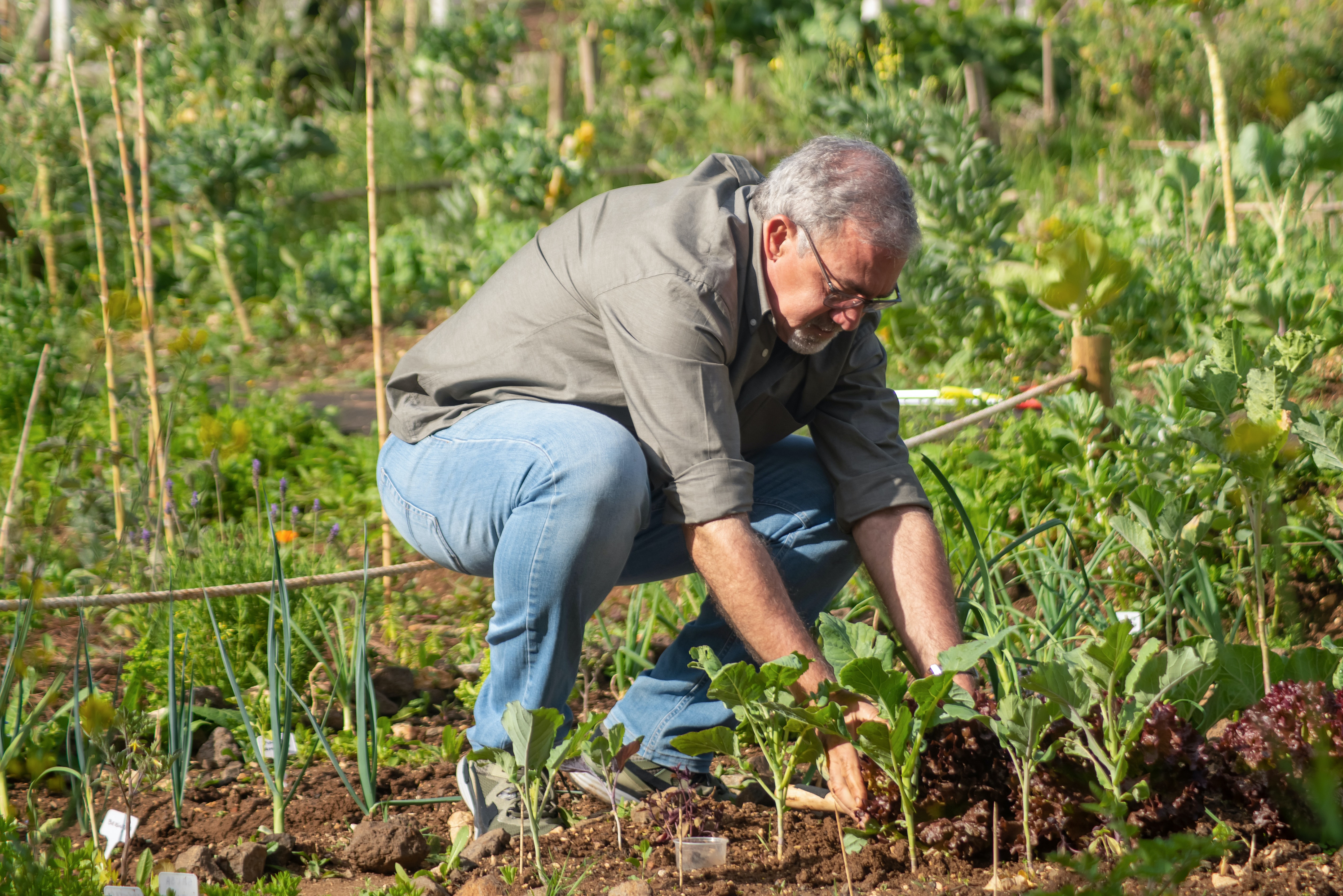
One of the most rewarding moments in gardening is harvesting your homegrown vegetables. Here are some tips for a successful harvest:
Timing: Harvest vegetables when they reach their peak ripeness. This may vary for each crop, so consult gardening resources for guidance.
Use Proper Tools: Invest in the right tools, such as pruners or garden shears, for a clean and gentle harvest. Tugging or ripping vegetables from the plant can damage both the plant and the produce.
Storage: Properly store harvested vegetables to maintain freshness. Some vegetables can be stored in the refrigerator, while others may require blanching and freezing for long-term storage.
7. Continuous Learning and Adaptation
Gardening is a dynamic and ever-evolving skill. As a beginner, it's essential to embrace a learning mindset. Here's how:
Keep a Garden Journal: Document your gardening experiences, including planting dates, observations, and outcomes. This information will be invaluable for future seasons.
Attend Workshops or Join a Community: Consider joining a local gardening club or attending workshops to learn from experienced gardeners. Sharing knowledge and experiences with others can accelerate your learning.
Experiment: Don't be afraid to experiment with different vegetables, planting techniques, or companion plantings. Some of the best lessons come from trial and error.
8. Pest and Disease Management
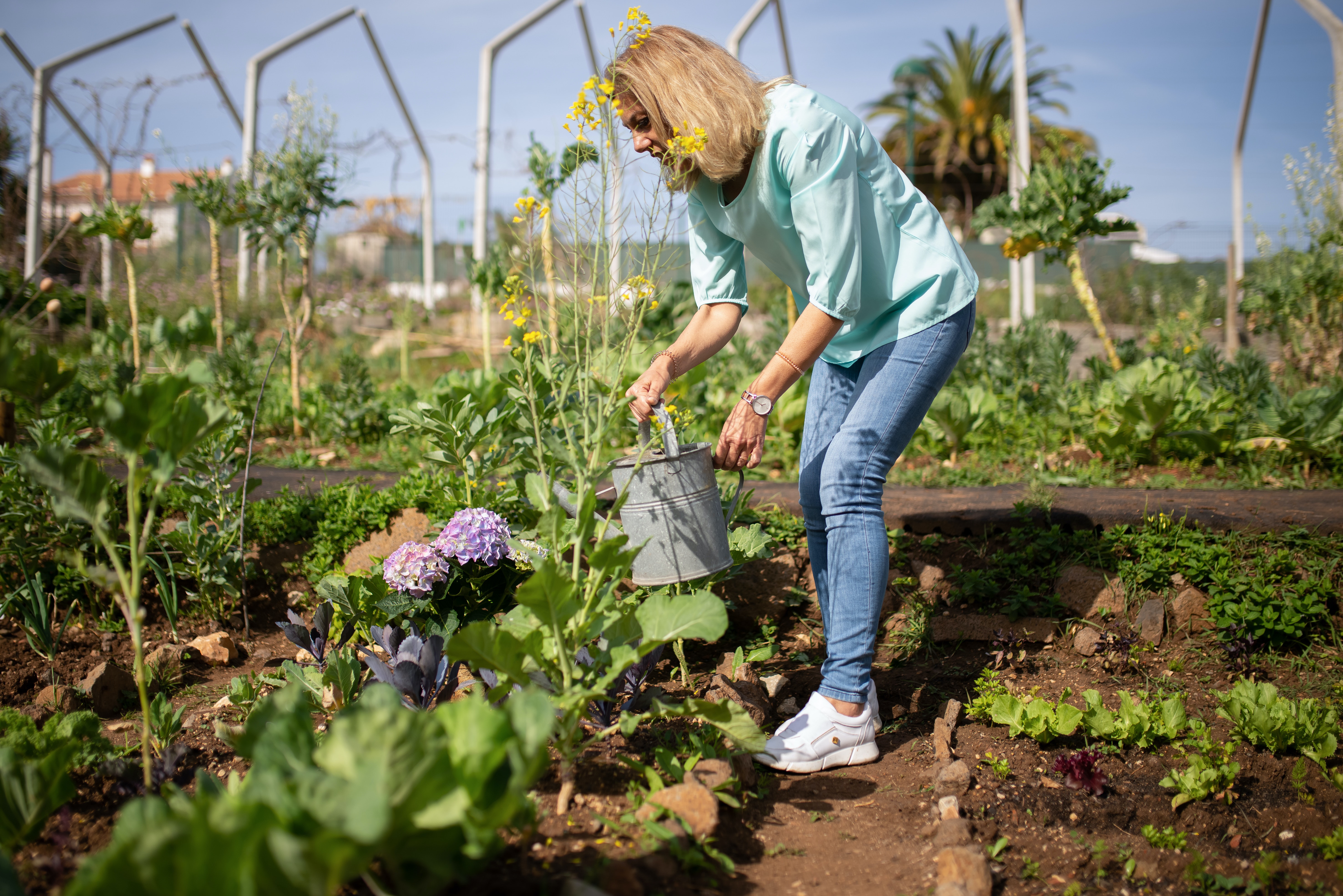
Pest and disease management is a crucial aspect of successful vegetable gardening. Here are some strategies to protect your plants:
Regular Inspection: Make it a habit to regularly inspect your plants for signs of pests or diseases. Early detection is key to preventing widespread damage.
Natural Remedies: Consider using natural remedies like neem oil, garlic spray, or insecticidal soap to deter common garden pests. These solutions are less harmful to the environment than chemical pesticides.
Crop Rotation: As mentioned earlier, crop rotation is not only beneficial for soil health but also helps break the life cycles of pests and diseases. By moving your vegetables to different locations each year, you reduce the risk of infestations.
9. Extending the Growing Season
If you're eager to enjoy fresh vegetables for an extended period, there are ways to extend your growing season:
Season Extenders: Invest in season-extending tools like cold frames, row covers, or cloches. These can protect your plants from frost and cold temperatures, allowing you to harvest fresh produce even in late fall or early spring.
Choose Frost-Tolerant Varieties: Some vegetables, like kale, carrots, and Brussels sprouts, are more tolerant of cold temperatures. Focus on planting these varieties in the cooler months.
Succession Planting: Instead of planting all your vegetables at once, practice succession planting. This involves sowing seeds or transplanting seedlings at different times, ensuring a continuous harvest throughout the season.
10. Sustainable Gardening Practices
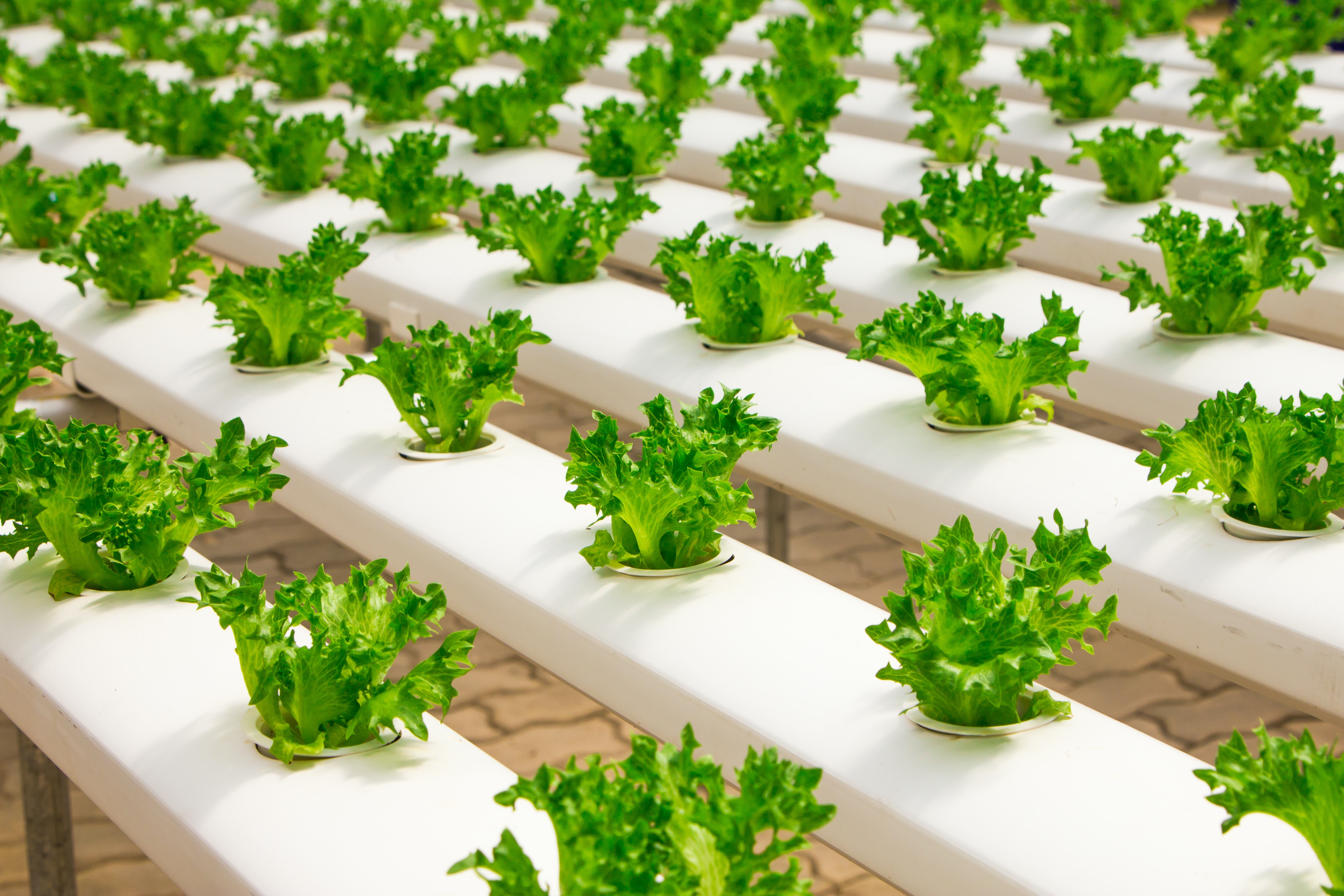
As you gain experience in vegetable gardening, consider adopting sustainable practices to minimize your environmental impact:
Composting: Start a compost pile or use a compost bin to recycle kitchen scraps and garden waste. Compost enriches your soil and reduces the need for synthetic fertilizers.
Water Conservation: Install a rain barrel to collect rainwater for watering your garden. This reduces your reliance on tap water and conserves this precious resource.
Beneficial Insects: Attract beneficial insects like ladybugs and pollinators to your garden by planting flowers alongside your vegetables. These insects help control pests and improve pollination.
In conclusion, embarking on your journey as a beginner vegetable gardener is an exciting and fulfilling endeavor. With the right location, thoughtful planning, suitable vegetable choices, soil preparation, and diligent maintenance, you can cultivate a thriving garden that provides you with fresh, homegrown produce. Remember that gardening is an ongoing learning process, and each season offers new lessons and experiences. By embracing sustainable practices, extending your growing season, and continually seeking knowledge, you can not only enjoy the benefits of your vegetable garden but also contribute to a more sustainable and eco-friendly lifestyle. So, go ahead, plant those seeds, nurture your plants, and savor the joy of harvesting your very own, delicious vegetables right from your home garden. Happy gardening!




Submit your email and confirm subscription to receive the download link, along with more e-books and helpful tips.
Don't worry, you can unsubscribe at any time
We Value Your Privacy And Your Information Is Never Shared
This site is not a part of the Facebook website or Facebook Inc. Additionally, this site is NOT endorsed by Facebook in any way. FACEBOOK is a trademark of FACEBOOK, Inc.
